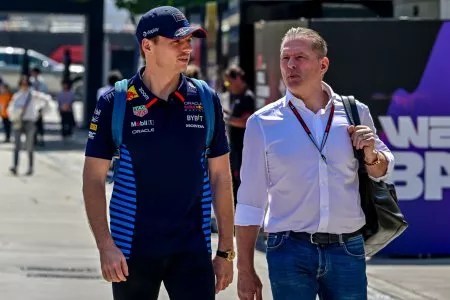A statement was issued by Mercedes after George Russell was disqualified from the Belgian Grand Prix and denied a memorable victory.
Mercedes looked to have secured a one-two at Spa-Franchorchamps on Sunday after Russell took the chequered flag and teammate Lewis Hamilton followed behind in second.
Oscar Piastri of McLaren finished in third but the result was changed after it emerged that Russell’s car was 1.5kg under the 798kg minimum weight limit.
Hamilton was therefore declared the winner, giving a second consecutive triumph.
There were plenty of theories flying around but Mercedes have now explained the situation in detail, stating that Russell’s car lost more weight than expected.
“The car can lose quite a lot of weight during the race,” Trackside engineering director Andrew Shovlin said, as per the BBC.
“You get tyre wear, plank wear, brake wear, oil consumption.
“The driver themselves can lose a lot, and in this particular race George lost quite a bit of weight.
“The cars started the race the same weight. Lewis and George were both weighed after qualifying. The cars were within 500 grams.
“George’s car was the only one that had the problem, and it is because things like the tyre wear was much higher. It looks like we lost more material on the plank.
“We will collect all that data though, look at how we can refine our processes because, clearly, we do not want that to happen in the future.”
Russell was left heartbroken by the outcome and Hamilton, who was disqualified last season for similar reasons at the United States Grand Prix, said he was experiencing “mixed feelings” after inheriting the win.
Shovlin admitted that the lower weight would have given the 26-year-old an advantage for the latter stages of the race.
He added: “In terms of pace at the start of the race, it is nil because George’s car and Lewis’ car start the race at the same weight,” he said.
“Obviously, as George’s car was losing weight faster than Lewis’ throughout the race, there is an associated gain with that.
“But you are into the hundredths of a second per lap. It will be very small because when you are talking about amounts like one or two kilos, they do not amount to a lot of lap time.”
F1 is now taking a brief summer break before the action on the track resumes with the Dutch Grand Prix at Zandvoort on August 23-25.



